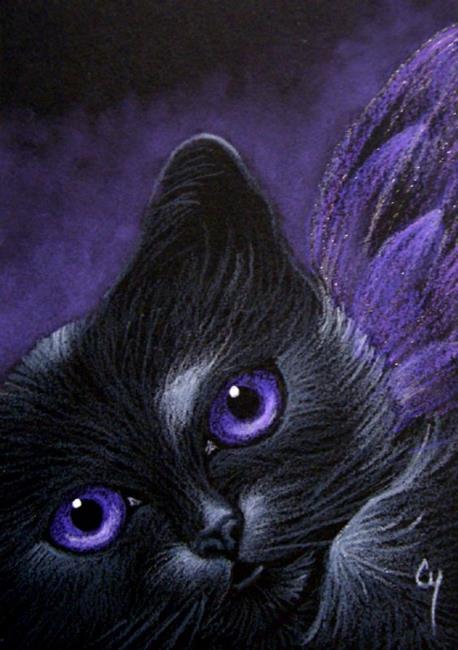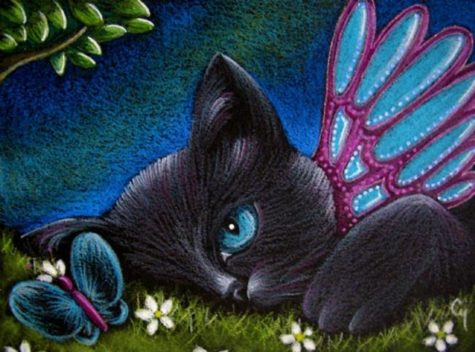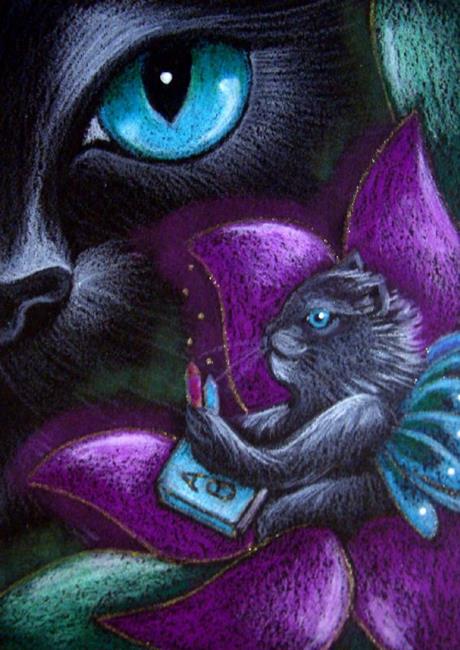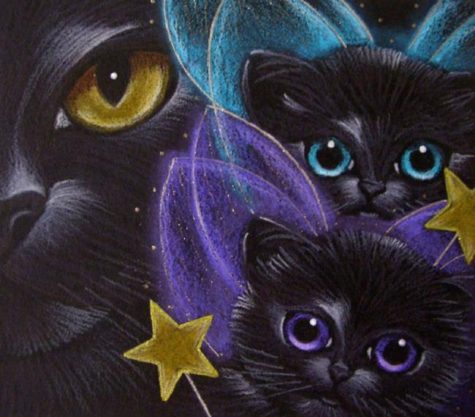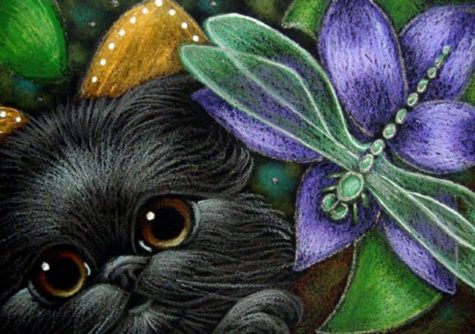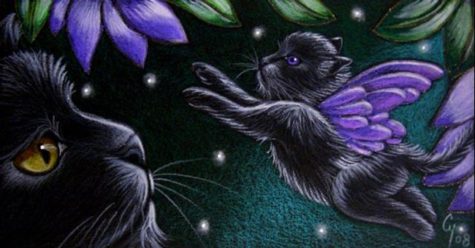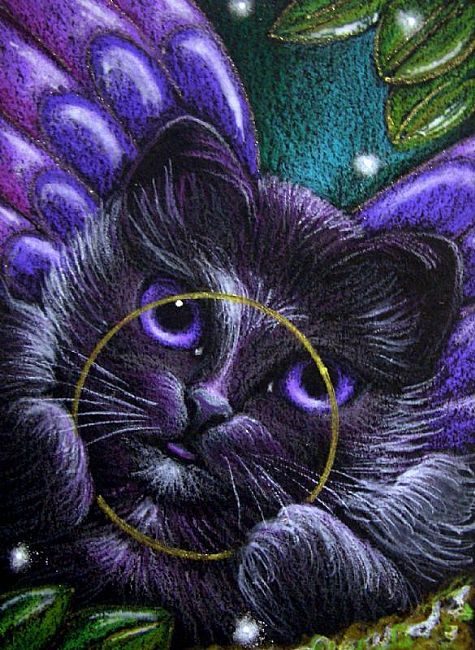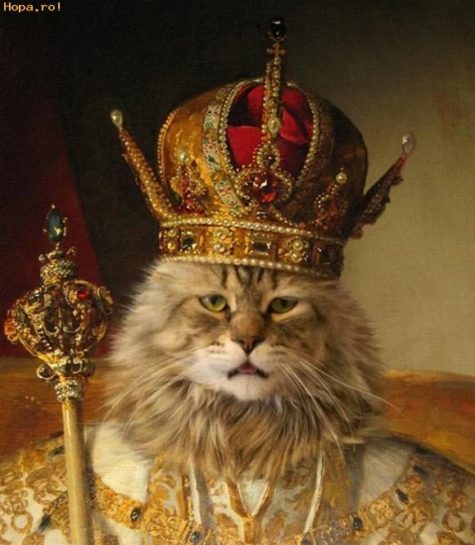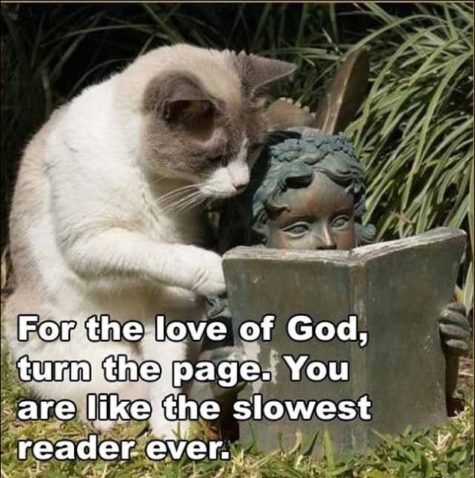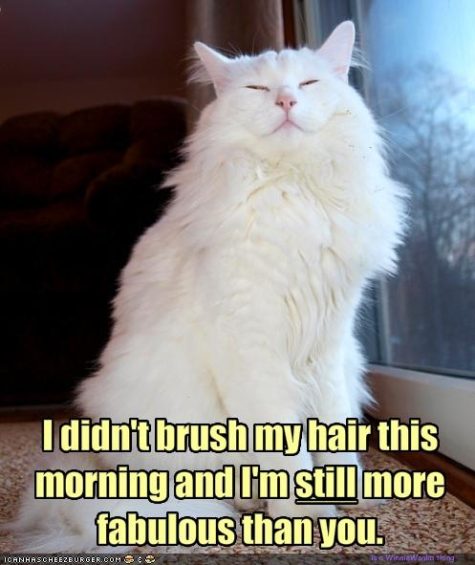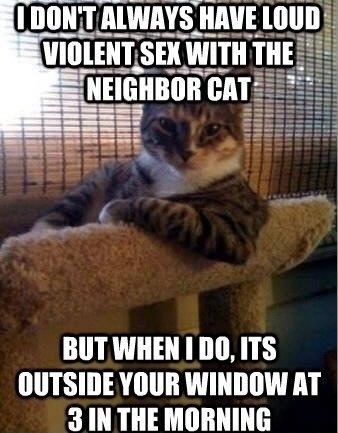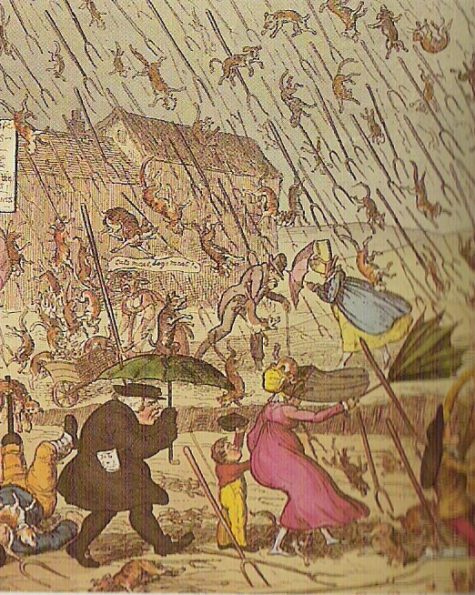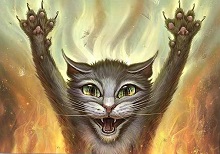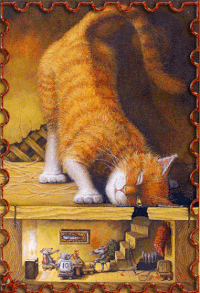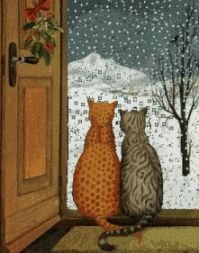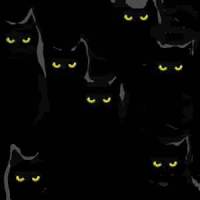Monthly Archives: July 2017
Simon’s Cat Gets Comfortable
More Fairy Kittens
The King of the Cats
Here’s a great cat story from Ancient Legends, Mystic Charms, and Superstitions of Ireland, by Lady Francesca Speranza Wilde, published in 1887.
A most important personage in feline history is the King of the Cats. He may be in your house a common looking fellow enough, with no distinguishing mark of exalted rank about him, so that it is very difficult to verify his genuine claims to royalty. Therefore the best way is to cut off a tiny little bit of his ear. If he is really the royal personage, he will immediately speak out and declare who he is; and perhaps, at the same the, tell you some very disagreeable truths about yourself, not at all pleasant to have discussed by the house cat.
A man once, in a fit of passion, cut off the head of the domestic pussy, and threw it on the fire. On which the head exclaimed, in a fierce voice, “Go tell your wife that you have cut off the head of the King of the Cats; but wait! I shall come back and be avenged for this insult,” and the eyes of the cat glared at him horribly from the fire.
And so it happened; for that day year, while the master of the house was playing with a pet kitten, it suddenly flew at his throat and bit him so severely that he died soon after.
A story is current also, that one night an old woman was sitting up very late spinning, when a knocking came to the door. “Who is there?” she asked. No answer; but still the knocking went on. “‘Who is there?” she asked a second the. No answer; and the knocking continued. “Who is there?” she asked the third time, in a very angry passion.
Then there came a small voice–“Ah, Judy, agrah, let me in,–for I am cold and hungry; open the door, Judy, agrah, and let me sit by the fire, for the night is cold out here. Judy, agrah, let me in, let me in!”
The heart of Judy was touched, for she thought it was some small child that had lost its way, and she rose up from her spinning, and went and opened the door–when in walked a large black cat with a white breast, and two white kittens after her.
They all made over to the fire and began to warm and dry themselves, purring all the time very loudly; but Judy said never a word, only went on spinning.
Then the black cat spoke at last–“Judy, agrah, don’t stay up so late again, for the fairies wanted to hold a council here tonight, and to have some supper, but you have prevented them; so they were very angry and determined to kill you, and only for myself and my two daughters here you would be dead by this time. So take my advice, don’t interfere with the fairy hours again, for the night is theirs, and they hate to look on the face of a mortal when they are out for pleasure or business. So I ran on to tell you, and now give me a drink of milk, for I must be off.”
And after the milk was finished the cat stood up, and called her daughters to come away.
“Good-night, Judy, agrah,” she said. “You have been very civil to me, and I’ll not forget it to you. Good-night, good night.”
With that the black cat and the two kittens whisked up the chimney; but Judy looking down saw something glittering on the hearth, and taking it up she found it was a piece of silver, more than she ever could make in a month by her spinning, and she was glad in her heart, and never again sat up so late to interfere with the fairy hours, but the black cat and her daughters came no more again to the house.
Borrowed from: Widdershins
I don’t suffer from insanity…
For the love of God…
Fabulous!
How To Distract An Egyptian God
Procrastination
When you didn’t do the homework till the last minute
and stayed up all night to do it
Borrowed from Meme City
I don’t always…
I don’t always
have loud violent sex with the neighbor cat
but when I do,
its outside your window at 3 in the morning
Borrowed from: Meme City
Raining Cats and Dogs
Where does the expression “Raining Cats and Dogs” come from?
Some authorities tie the idea to Norse mythology. Odin, the Viking god of storms, was often pictured with dogs and wolves, symbols of wind. Witches, who supposedly rode their brooms during storms, had black cats, which became signs of heavy rain. Therefore, “raining cats and dogs” referred to a storm with wind (dogs) and heavy rain (cats).
While the story sounds good, the expression didn’t become popular until the 1700s, when Jonathan Swift (author of Gulliver’s Travels) used it in a satire. He pictured snobby upper class aristocrats solemnly fretting that it would “rain cats and dogs”. Suddenly the saying caught on. Apparently, the English spent a lot of time chatting about rain and it was the latest hit phrase.
More recently, this bit of contemporary “folklore” distributed in a hoax email put forth the following idea, which has since been disproved:
In the 1500’s, houses had thatched roofs – thick straw, piled high, with no wood underneath. It was the only place for animals to get warm, so all the pets… dogs, cats and other small animals, mice, rats, bugs lived in the roof. When it rained it became slippery and sometimes the animals would slip and fall off the roof. Hence the saying, “It’s raining cats and dogs.”
Borrowed from: Sigils Symbols and Signs

